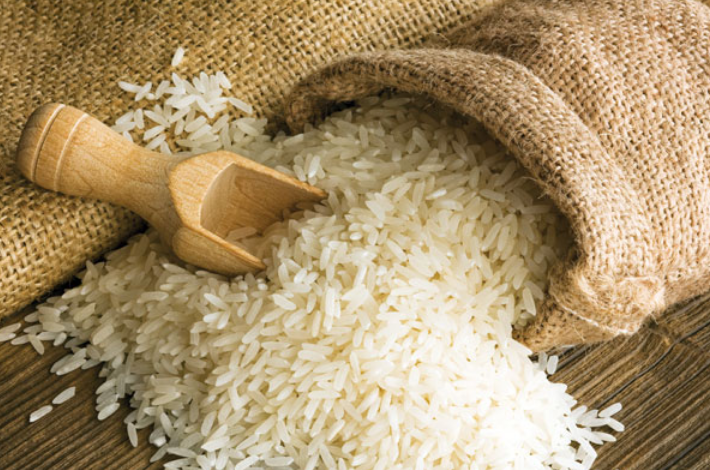Fueling Kitchens Worldwide: The Unsung Role of Rice Wholesalers

In the world of global food distribution, few players are as essential—and as often overlooked—as rice wholesalers. These key intermediaries ensure that one of the world’s most consumed staple foods, rice, flows seamlessly from farms to kitchens across continents. While the limelight often shines on exporters and manufacturers, rice wholesalers remain the engine that powers bulk supply chains, local markets, and international trade alike.
The Backbone of the Global Grain Trade
Rice is not just another grain—it’s a dietary staple for over half the world’s population. With rising global consumption and changing food habits, the demand for both premium and affordable rice varieties has soared. Rice wholesalers play an integral role in meeting this demand by acting as a bridge between farmers, millers, manufacturers, and retailers.
These wholesalers specialize in sourcing rice in large quantities directly from manufacturers or processors and distributing it to retailers, restaurants, bulk food buyers, and exporters. Their logistical efficiency, deep market knowledge, and ability to manage large inventories ensure that rice remains available, affordable, and consistent in quality across markets.
India: A Powerhouse for Rice Wholesaling
India is not only the world’s largest rice exporter but also a vibrant hub of wholesale rice trade. The Indian rice wholesale market is a complex and well-oiled network, comprising traders, millers, transporters, and distributors operating at both national and international levels.
Wholesale hubs like Khanna (Punjab), Naya Bazar (Delhi), Kakinada (Andhra Pradesh), and Nizamabad (Telangana) handle hundreds of thousands of tonnes of rice every year. These hubs are essential for both Basmati and non-Basmati rice trade, serving domestic consumption and facilitating exports.
From these markets, rice wholesalers ship grains to buyers in the Middle East, Africa, Southeast Asia, Europe, and the Americas—effectively fueling global kitchens with Indian rice.
The Strategic Role of Wholesalers in the Supply Chain
Rice wholesalers are much more than bulk dealers. They perform several critical functions:
- Aggregation: Buying rice in bulk from multiple producers or manufacturers.
- Sorting and Packaging: Customizing packaging for retailers, exporters, or institutional buyers.
- Storage and Warehousing: Maintaining large inventory in controlled environments to ensure year-round supply.
- Pricing Stability: Helping stabilize market prices by controlling supply in times of shortages or surplus.
- Market Expansion: Supporting newer markets with the introduction of different rice varieties at scale.
One notable trend in the sector is the growing emphasis on traceability and quality control. Many wholesalers now demand product traceability from manufacturers and millers, especially when dealing in premium categories like Basmati.
As part of this value-driven chain, Basmati Rice Manufacturing is evolving to meet the high standards required by these wholesale clients, ensuring better grain quality, aroma retention, and compliance with global food safety standards.
See also: Can Puppies Eat Wet Dog Food? A Vet-Approved Guide
Types of Rice Handled by Wholesalers
Rice wholesalers typically deal in a wide range of varieties to meet diverse consumer needs:
- Basmati Rice: Known for its fragrance, long grain, and rich taste. Popular in Middle Eastern, European, and North American markets.
- Non-Basmati Rice: Includes varieties like IR64, Sona Masoori, and Ponni—often shipped to African and Southeast Asian nations.
- Parboiled Rice: Highly preferred in West Africa due to its higher nutrient retention.
- Organic and Specialty Rice: A growing segment, especially in health-conscious markets like the EU and USA.
Top 5 Leading Rice Wholesaling & Exporting Companies in India
Behind every successful rice wholesaler is a reliable and quality-focused manufacturer. These companies ensure a steady supply of high-grade rice that wholesalers can distribute confidently. Here are the top five companies that power the rice wholesale and export market in India:
1. KRBL Limited
As the maker of the world-renowned India Gate Basmati Rice, KRBL is a leading name in Basmati rice manufacturing and wholesale supply. With state-of-the-art milling facilities and global distribution channels, they provide consistent quality and reliability.
2. LT Foods Ltd.
Famous for its Daawat brand, LT Foods has a robust presence in both retail and wholesale sectors. The company partners with wholesalers worldwide to ensure their products reach every shelf and restaurant efficiently.
3. DRRK Foods Pvt Ltd
Among the fastest-growing rice wholesalers and exporters in India, DRRK Foods Pvt Ltd is known for its dedication to quality, sustainability, and innovation. With a strong portfolio of both Basmati and non-Basmati varieties, DRRK serves clients in over 45 countries. Their cutting-edge processing units and integrated supply chain solutions make them a preferred partner for many large-scale distributors and wholesalers. DRRK’s ability to offer customized packaging and meet bulk orders with quick turnaround times has made them a leader in the B2B rice trade.
4. Amira Nature Foods Ltd.
With a history dating back over a century, Amira has built a strong brand globally. Their premium Basmati rice is widely distributed through wholesalers across the Middle East, Europe, and North America.
5. Kohinoor Foods Ltd.
Famous for its Kohinoor brand, the company supplies a wide variety of rice types and works closely with wholesalers to meet large-volume orders. Their reputation for consistent quality makes them a trusted name in the wholesale segment.
Digitalization in Wholesale Rice Trade
Technology is reshaping how rice wholesalers do business. Online platforms, B2B marketplaces, and mobile apps are allowing wholesalers to source rice directly from manufacturers, compare pricing in real-time, and monitor inventory digitally.
Moreover, with tools like ERP software and AI-based forecasting, wholesalers can better predict demand and avoid overstocking or understocking—crucial in a business where timing and freshness matter.
Blockchain integration is also being explored to improve traceability and ensure product authenticity, especially in the premium rice segment.
Challenges Faced by Rice Wholesalers
Despite its opportunities, the rice wholesale business comes with challenges:
- Price Volatility: Sudden price hikes due to government policy changes, climate impact, or export restrictions.
- Storage Costs: Managing warehouses with temperature and moisture control is expensive.
- Logistics: Rising freight charges and port delays can affect delivery timelines.
- Quality Assurance: Maintaining consistent quality across bulk shipments is a continuous challenge.
Top players like DRRK Foods Pvt Ltd are addressing these challenges through integrated warehousing, technology-backed quality control, and close coordination with logistics providers.
The Future of Rice Wholesaling
As global food supply chains become more sophisticated, the role of rice wholesalers will only grow in importance. Opportunities lie in:
- Value-Added Products: Like flavored rice, ready-to-cook packs, or fortified rice for nutrition programs.
- Expansion into Untapped Markets: Africa, Latin America, and parts of East Asia still hold massive potential for Indian rice.
- Sustainable Trade Practices: Demand for organic, non-GMO, and low-carbon footprint rice will favor eco-conscious wholesalers.
- Private Label Opportunities: Wholesalers can partner with retailers to launch store-brand rice with customized packaging and specs.
Conclusion
The global journey of rice—starting from sun-kissed Indian fields to plates around the world—is incomplete without the tireless work of rice wholesalers. These unsung heroes keep global supply chains running smoothly, balancing the complexities of demand, logistics, and quality with agility and expertise.
Companies like DRRK Foods Pvt Ltd are setting new benchmarks in the wholesale segment by combining traditional trade practices with modern business innovation. As demand continues to grow, wholesalers will remain at the heart of this grain economy, fueling kitchens worldwide—one sack of rice at a time.





